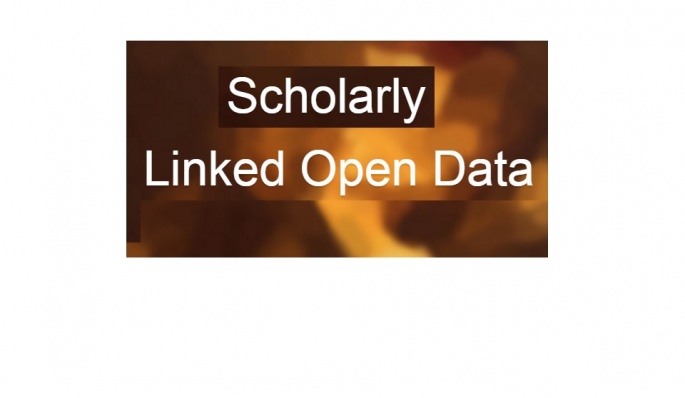From ScholarlyData.org to pioneering the Linked Open Research Cloud
31/01/2017


ScholarlyData.org is an effort to keep the research dataset growing in good health. ScholarlyData has adopted best ontology design practices that guarantee backward compatibility with its predecessor - SWDF. ScholarlyData.org provides facilities and services to publish your scholarly data as Linked Open Data.
_____________________________________________________________________________________________________
|
"The LOD Cloud contains minimal information about the research output from Web Science, Semantic Web, and Linked Data venues … Moreover, our interactions with these publications are static, and not very social. Simply put, we are not taking full advantage of what the Web enables us to do, let alone applying our own tools and standards to publish, consume, or enhance the output" (Linked Data on the Web, LDOW2017). |
|
“Semantic Publishing aims at providing access to semantic enhanced scholarly products with the aim of enabling a variety of semantically oriented tasks, such as knowledge discovery, knowledge exploration and data integration” (Conference Linked Data: the ScholarlyData project). |
ScholarlyData.org is a refactoring of the Semantic Web Dog Food (SWDF) - a corpus that collects Linked Data about papers, people, organisations, and events related to academic conferences.
ScholarlyData.org uses a novel data model, the conference-ontology, which improves the Semantic Web Conference Ontology
The SWC ontology combines existing widely accepted vocabularies (i.e. FOAF, SIOC and Dublin Core) and relies on the SWRC (Semantic Web for Research Communities) ontology for modeling entities such as accepted papers, authors, their affiliations, talks and other events, the organizing committee and all other roles involved.
The new conference-ontology adopts best ontology design practices (e.g. Ontology Design Patterns, ontology reuse and interlinking) and guarantees interoperability with SWC ontology and all other pertinent vocabularies.
To regenerate the SWDF dataset according to conference-ontology and provide a sustainable solution for the growth of the dataset in the future, cLODg (conference Linked Open Data generator; an Open Source tool that provides a standard/formalized process for the conference metadata publication workflow) has been used.
|
Type |
Individuals |
Type |
Individuals |
|
conf:TimeIndexedSituation |
20,998 |
conf:RoleDuringEvent |
6,510 |
|
conf:ListItem |
14,805 |
conf:List |
4,463 |
|
conf:AffiliationDuringEvent |
14,488 |
conf:InProceedings |
4,393 |
|
conf:Agent |
12,490 |
conf:OrganisedEvent |
2,882 |
|
conf:Person |
9,682 |
conf:Organisation |
2,808 |
(Table 1. Number of unique individuals for each class of conference-ontology generated with cLODg; Conference Linked Data: the ScholarlyData project).
Using cLODg to produce metadata about a new conference guarantees that pertinent roles are reused if already existing the dataset.
Generated (at global level) and reused (at conference level) roles are organized in a hierarchy by using SKOS to express broader and narrower relations between them.
With the availability of cLODg as standard Linked Data publication workflow, we believe that scholarlydata has the potential to grow way beyond the Semantic Web conferences.
- Individuals of conf:Person are aligned to ORCID (Open Researcher and Contributor ID: persistent digital identifiers for scientific researchers and academic authors).
The alignments to ORCID were produced by using the public API provided by ORCID.
- Individuals of conf:InProceedings are aligned to DOI (Digital Object Identifier: a serial code used to uniquely identify digital objects, particularly used for electronic documents), whenever possible.
The references to DOI were produced by using the API provided by Crossref, performing a search on each article title.
All data is uploaded on ScholarlyData.org where can be accessed in different formats (i.e. HTML+RDFa, RDF/XML, Turtle, N-TRIPLES, and JSON-LD) via URI dereferencing, queried via SPARQL or downloaded as single RDF dumps for each conference and workshop. These dumps are released with the Creative commons by 3.0 license and are described by using the VOID vocabulary.
ScholarlyData.org offers the facilities to generate data about new conferences using cLODg and submit it for addition to scholarlydata. With the availability of cLODg as standard LD publication workflow, scholarlydata has the potential to grow way beyond the Semantic Web conferences. As a first step, cLODg could be provided as a build-in facility in the Conference Management System.
The upcoming Linked Data on the Web (LDOW2017) workshop (April, 2017) promotes the idea to take the ScholarlyData to a new level. Moreover, the LDOW Workshop invites to write articles in HTML and annotate with RDFa/Turtle/JSON-LD. Publish datasets and similar results openly (e.g., in a public repository) and available as Linked Data. For authoring according to the Linked Research principles, authors can use dokieli - a decentralised authoring and annotation tooling (see source).
|
Piecing the puzzle. Self-publishing queryable research data on the Web (an HTML+RDFa article submitted to LDOW2017 by Ruben Verborgh). |
Sources:
- ScholarlyData.org
- Conference Linked Data: the ScholarlyData project (article)
- Linked Data on the Web (LDOW2017)
Related content:
Calls for Linked Research : Enabling Decentralized Scholarly Communication
